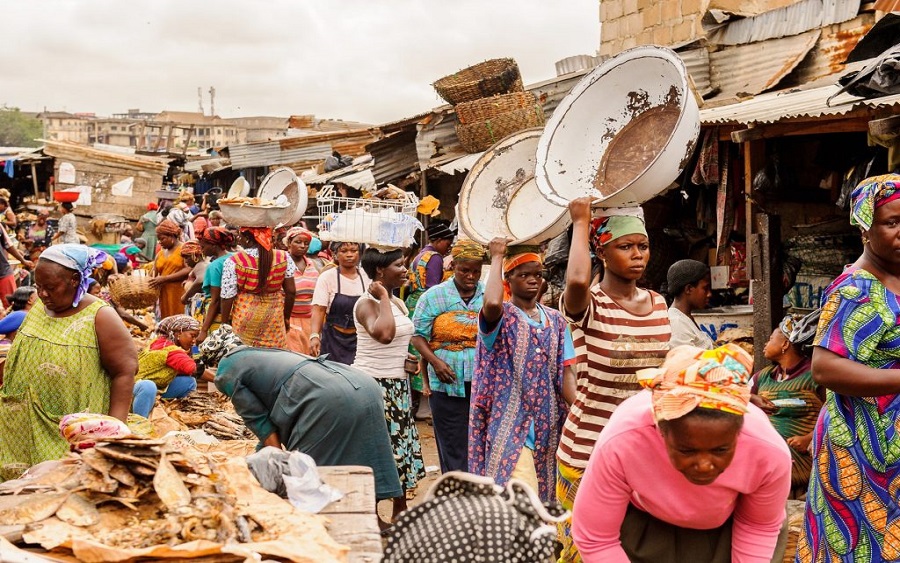The World Bank at the weekend has revealed that between 2020 and the end of 2021, Nigeria’s rare high inflation rate may drive about 5.6 million Nigerians further into poverty.
In a recent Annual World Bank Group/IMF Meetings hosted by the Standard Bank Research Group, the World Bank Group’s Lead Economist for Nigeria and IMF’s mission team made the remark explaining that “Nigeria has one of the highest levels of inflation — but the drivers here differ from across the globe.”
“Admittedly, higher inflation reduces purchasing power, translating into higher levels of poverty and, ultimately, insecurity. The IMF estimates that between 2020 and 2021, high inflation may drive 5.6 million Nigerians into poverty.”
“Closed borders on Aug 19 caused inflation to shoot up, mainly driven by food inflation and, while inflation has been trending lower since Mar 21, it remains high due to FX liquidity difficulties, supply chain disruptions, and insecurity.”
READ ALSO: World Bank blacklists 18 Nigerian companies and individuals for corruption
The World Bank/IMF team also projected Nigeria’s annual growth at 2.6% for 2021 and 2.7% for 2022 citing that “Oil production should improve, with the oil sector expected to recover in the medium term.”
The IMF has acknowledged as a positive move the unification of the official exchange rate with the rate at the investors and exporters window. Nevertheless, the Fund believes that making the NAFEX rate more flexible would boost Nigeria’s competitiveness and serve as an incentive to FPIs as well as reduce the premium between the parallel market and official market, thereby softening inflation.
The IMF projects the 2021 fiscal deficit at 6% of GDP, inclusive of the supplementary budget. Concerning is the implicit return of PMS subsidies since Jan 21, projected to add a deficit of 1% of GDP in 2021. The subsidy, which serves as a fiscal drain, is projected to reach NGN 2.6tr, higher than the budgeted expenditure for either education or health.

 Health1 week ago
Health1 week ago
 Education6 days ago
Education6 days ago
 Comments and Issues5 days ago
Comments and Issues5 days ago
 Football1 week ago
Football1 week ago
 Comments and Issues6 days ago
Comments and Issues6 days ago
 Crime1 week ago
Crime1 week ago
 Football6 days ago
Football6 days ago
 Energy6 days ago
Energy6 days ago

